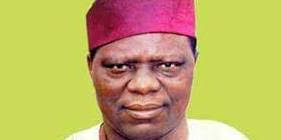Akwa Ibom Government House is a designated office for the Governor of the state. His office portfolio supersedes every arm of the cabinet, making the governor a significant figure, as all matters regarding planning, decisions, and governance of the state rest on the Executive Governor.
Akwa Ibom State, established in 1987 during the military regime of General Ibrahim Babangida, was first overseen by an administrator referred to as a military governor. The first civilian governor was elected during the Third Republic period.
In all, the state’s administration has featured both military and democratic styles of governance. As such, if you would like to know the former, past, and current leadership, this guide contains the complete list of Akwa Ibom State governors to date.
Complete List of Akwa Ibom State Governors
| No | Name | Born | Duration | Party | Remarks |
| 1 | Jonathan Tunde Ogbeha | 1 Sep 1945 | 28 Sep 1987 – 30 Jul 1988 | Military Admin. | First Military Administrator |
| 2 | Godwin Abbe | 10 Jan 1949 | 31 Jul 1988 – 5 Sep 1990 | Military Admin. | — |
| 3 | Idongesit Nkanga | 27 Jan 1952 | 5 Sep 1990 – 2 Jan 1992 | Military Admin. | — |
| 4 | Akpan Isemin | 24 May 1939 | 2 Jan 1992 – 18 Nov 1993 | NRC | First Civilian Governor |
| 5 | Yakubu Bako | 22 May 1952 | 15 Dec 1993 – 21 Aug 1996 | Military Admin. | — |
| 6 | Joseph Adeusi | 1940 | 21 Aug 1996 – 9 Aug 1998 | Military Admin. | — |
| 7 | John Ebiye | N/A | 9 Aug 1998 – 29 May 1999 | Military Admin. | — |
| 8 | Obong Victor Attah | 20 Nov 1942 | 29 May 1999 – 29 May 2007 | PDP | — |
| 9 | Chief Godswill Obot Akpabio | 9 Dec 1962 | 29 May 2007 – 29 May 2015 | PDP | — |
| 10 | Mr. Udom Gabriel Emmanuel | 11 Jul 1966 | 29 May 2015 – 29 May 2023 | PDP | — |
| 11 | Pastor Umo Bassey Eno | 10 Apr 1964 | 29 May 2023 – Incumbent | PDP | — |
READ ALSO: About Akwa Ibom State
Who was the first governor of Akwa Ibom State?

The first administrative government of Akwa Ibom State was Jonathan Tunde Ogbeha in 1987. Ibrahim Babangida handpicked him to represent the Ibomites as a military administrator. Tunde Ogbeha was in office from September 27, 1987, to July 30, 1988.
Initially, Ogbeha met a new state with no administration or leadership, and his skills were harnessed to establish a functional government. Being new into the governor’s office, he identified transportation challenges even in the small town of Uyo- now rising shoulder to shoulder with major cities in Nigeria- and established the Akwa Ibom Transport Company to ease movement for both civil servants and the general public.
Tunde was also a man of the press. He gave his support to the founding of Akwa Ibom Newspaper Limited, thereby improving journalism. His achievements include the construction of major roads in Uyo, such as Eka and Umoren Road, and the dualization of the Ikot Ekpene Road.
The Kogi State indigene was born in Lokoja in 1945. After completing his secondary school certificate, he got into the Nigerian Defence Academy and, in 1970, at the age of 25, was commissioned as a 2nd Lieutenant. By 1983, Tunde Ogbeha had risen through the military ranks to become a Colonel and ended his military career as a Brigadier.
Historically, Tunde Ogbeha is known for participating in the 1983 coup that unseated Shagari to install Gen. Muhammadu Buhari. He was also actively involved in the 1985 military takeover that ousted Buhari and brought General Ibrahim Babangida to power.
Nevertheless, the Ogbeha once governed the former Bendel State, which is now split into Edo and Delta States. Returning to the Fourth Republic, Ogbeha served as a Senator of the Federal Republic in 1998, representing Kogi West Senatorial District, and left office in 2007.
Today, the history of the beautiful land of Akwa Ibom — especially the capital city — would be incomplete without mentioning the very first leader of the state, Tunde Ogbeha.
Who is the first civilian governor of Akwa Ibom State?

In 1991, the Ibomites witnessed the birth of a democratic government. Through a free and fair election, the people collectively voted for Mr. Obong Akpan Isemin as their first civilian executive governor. Obong Akpan won the governorship seat under the political party National Republican Convention.
He was in office from January 2, 1992, until the collapse of Nigeria’s Third Republic, when Sani Abacha forcefully seized power after the annulment of the 1993 presidential elections.
While in office, Obong challenged the low revenue allocation from the federal government and succeeded in increasing it from ₦350,000 monthly to ₦11.2 million — a remarkable achievement. The former governor gave everyone a fair chance to be involved in his cabinet, irrespective of the different ethnic groups or tribes in Akwa Ibom land.
With his inclusive mindset and leadership style, Akpan’s performance would have been even more impactful if not for the military coup. Obong Akpan was born in 1939 in Etinan LGA of Akwa Ibom and hails from the Ibibio ethnic group. He held a B.Sc. in Economics from the University of Nigeria, Nsukka.
His early career was in the oil sector, and he rose to the position of Executive Director while working at Avery Limited, Nigeria. Obong’s diverse life experiences prepared him for the governorship role — showing us that preparation is key to new opportunities.
Who is the current governor of Akwa Ibom?

Mr. Umo Bassey Eno is the current governor of Akwa Ibom State. Eno contested for the executive governor seat in 2023 under the People’s Democratic Party and subsequently won the election. INEC swore Umo Bassey into office on May 29, 2023.
Before his new portfolio, Bassey was Commissioner for Lands and Water Resources under his predecessor but resigned to run for his current position. Apart from being a politician and public administrator, Bassey is a clergyman and the Senior Pastor of All Nations Christian Ministry. His leadership skills made him stand out in his daily administrative functions as governor.
Previously, Mr. Umo worked with Union Bank and Bertola Machine Tools Nigeria in Lagos. He was also the former CEO of Norman Holdings Limited. As a visionary, while he worked and helped build other people’s businesses, he didn’t stop there — he founded his firm, Royalty Groups, in 1987, located in Akwa Ibom.
Even with all his achievements, he didn’t relax but pushed further to the Government House to contribute positively to the people of Akwa Ibom and the state’s development.
To mention, the man of God is an indigene of Ikot Ekpene Udo town in Nsit-Ubium. He was born on April 23, 1964, in Ikot Ekpene. After his primary and secondary education, he studied Public Administration at the University of Uyo and also obtained a Master’s degree in the same discipline from Uyo University.
Observation from Umo’s story: you can still resign from your current career and become what you are aiming for — with calculated steps.
Conclusion
The above table featured the overall list of Akwa Ibom state governors and it is to help you know their names, their year in office whether military or civilian style of government

Leave a Reply